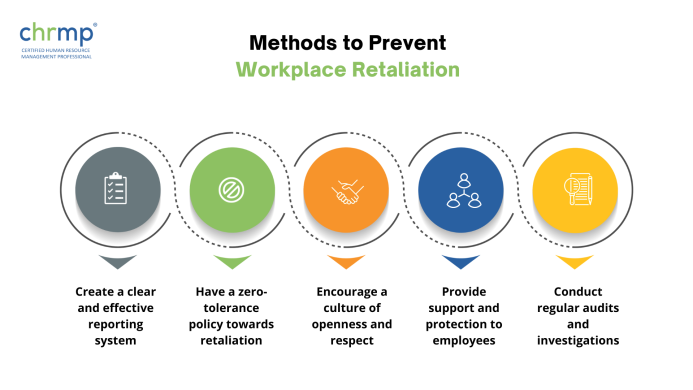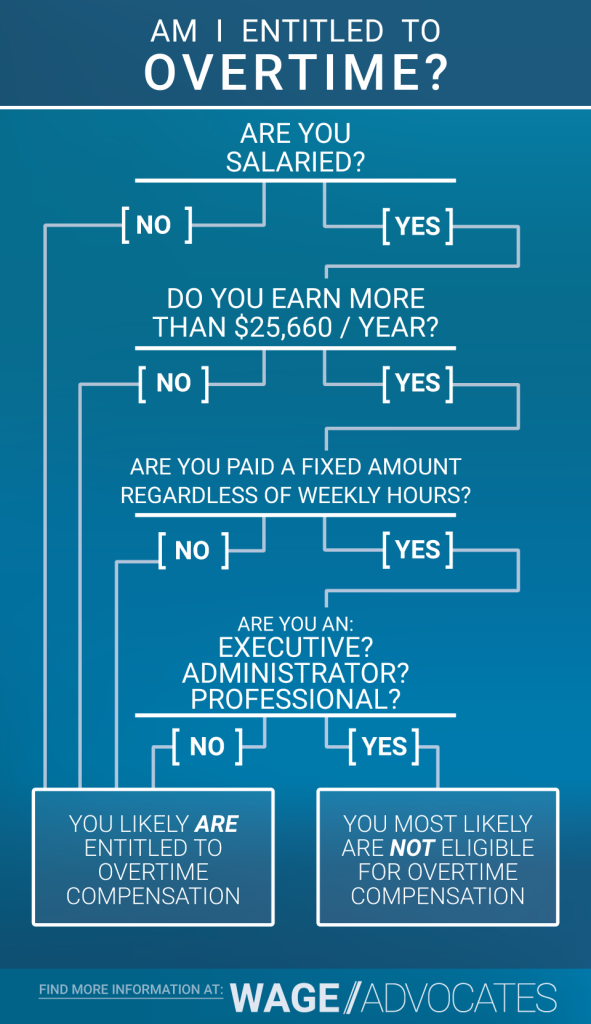
Recruitment Agencies vs. In-House Hiring: Which is Right for Your Business?
Hiring the right people is one of the most crucial challenges for any business. The individuals you bring into your team directly impact your company’s success, culture, and future. But how do you find these perfect candidates? Do you rely on external experts, or do you build your own internal hiring powerhouse?
This fundamental question boils down to two main approaches: using Recruitment Agencies or managing In-House Hiring. Both have their unique strengths and weaknesses, and understanding them is key to making the best choice for your specific needs.
In this comprehensive guide, we’ll break down everything you need to know about recruitment agencies versus in-house hiring, helping you decide which path is best for your business, whether you’re a startup, a growing SME, or a large corporation.
Understanding the Basics: What Are We Talking About?
Before diving into the pros and cons, let’s clarify what each term means:
What is a Recruitment Agency?
Imagine a team of professional matchmakers, but for jobs! A Recruitment Agency (also known as a staffing agency, headhunter, or talent agency) is an external company that specializes in finding candidates for other businesses. They have vast networks, databases of potential hires, and expert recruiters who know how to identify and attract top talent.
- How they work: When you need to fill a position, you tell the agency what you’re looking for. They then search their networks, advertise, screen candidates, and present you with a shortlist of the most qualified individuals. You typically pay them a fee only when you successfully hire one of their candidates.
What is In-House Hiring?
In-House Hiring means that your own company’s team, usually your Human Resources (HR) department or a dedicated Talent Acquisition specialist, handles the entire recruitment process from start to finish. They manage job postings, resume screening, interviews, and offers themselves.
- How they work: Your internal team identifies a hiring need, creates job descriptions, posts them on job boards and your company website, sifts through applications, conducts interviews, and extends offers. They use your company’s resources and expertise throughout the process.
Recruitment Agencies: The External Experts
Let’s explore the advantages and disadvantages of bringing in the pros.
The Advantages of Using a Recruitment Agency
-
Speed and Efficiency:
- Why it matters: When a critical role is open, every day counts. Lost productivity and missed opportunities can be costly.
- How agencies help: Agencies often have a ready pool of pre-screened candidates and extensive networks. They can quickly identify and present suitable candidates, significantly reducing the time-to-hire. They are also solely focused on recruitment, unlike an HR team with many other responsibilities.
-
Access to a Wider Talent Pool (Including Passive Candidates):
- Why it matters: The best candidates aren’t always actively looking for a job. These "passive candidates" might be happy in their current roles but open to better opportunities.
- How agencies help: Agencies specialize in headhunting and networking. They have the tools, connections, and expertise to reach out to these passive candidates who might never see your job posting. This opens up a whole new world of talent you might otherwise miss.
-
Specialized Expertise and Industry Knowledge:
- Why it matters: Hiring for niche roles (e.g., a specific type of engineer, a unique marketing specialist) requires a deep understanding of that industry and its talent landscape.
- How agencies help: Many agencies specialize in particular industries (e.g., IT, finance, healthcare) or job functions. Their recruiters understand the market, typical compensation, required skills, and where to find the best talent in that specific area.
-
Reduced Workload for Your Internal Team:
- Why it matters: Recruitment is a time-consuming process involving writing job descriptions, advertising, sifting through hundreds of applications, scheduling interviews, and communicating with candidates.
- How agencies help: They handle the heavy lifting! Your team only needs to review a curated shortlist of top candidates, saving countless hours that can be redirected to other core business activities.
-
Confidentiality for Sensitive Hires:
- Why it matters: Sometimes, you need to replace an existing employee, create a new senior role that could disrupt the team, or explore a strategic hire without publicizing it.
- How agencies help: Agencies can conduct searches discreetly, without revealing your company’s name until later stages, protecting your internal dynamics and competitive strategy.
-
Risk Mitigation and Guarantees:
- Why it matters: Hiring is an investment, and sometimes a new hire doesn’t work out.
- How agencies help: Many agencies offer guarantees, meaning if a candidate leaves within a certain period (e.g., 3-6 months), they will find a replacement free of charge or offer a partial refund. This reduces your financial risk.
The Disadvantages of Using a Recruitment Agency
-
Cost (The Agency Fee):
- Why it matters: This is often the biggest hurdle for businesses.
- The downside: Agencies charge a fee, typically a percentage of the hired candidate’s first-year salary (ranging from 15% to 30% or even higher for executive roles). While it’s a pay-for-performance model (you only pay if you hire), these fees can add up, especially if you’re hiring for multiple positions.
-
Less Control Over the Process:
- Why it matters: You’re outsourcing a critical function, which means you have less direct oversight of every step.
- The downside: You rely on the agency’s judgment and screening methods. While good agencies will communicate regularly, you might not have full visibility into every candidate they contact or every stage of their internal process.
-
Potential for Misfits (Cultural or Skill-Wise):
- Why it matters: An agency might not fully grasp your company’s unique culture or the nuanced skills required for a role, leading to a candidate who looks good on paper but isn’t a true fit.
- The downside: While agencies aim for perfect matches, they are external. They might prioritize filling the role quickly over a deep understanding of your team’s dynamics or specific internal jargon/processes. It requires strong communication from your side to prevent this.
-
Brand Representation:
- Why it matters: How candidates experience the hiring process reflects on your company’s brand.
- The downside: The agency becomes the first point of contact for many potential hires. If they don’t represent your company’s values or brand effectively, it can negatively impact your employer reputation.
-
Lack of Long-Term Internal Knowledge Building:
- Why it matters: If you always outsource, your internal team might not develop the skills and market knowledge necessary for effective recruitment.
- The downside: You become reliant on external partners, and your own HR team may miss out on opportunities to build direct relationships with talent and understand the nuances of the hiring market.
In-House Hiring: Building Your Own Talent Machine
Now, let’s look at the benefits and challenges of keeping recruitment within your own walls.
The Advantages of In-House Hiring
-
Cost-Effective (in the Long Run):
- Why it matters: Avoiding agency fees can save a significant amount of money, especially if you have consistent hiring needs.
- How it helps: While there are costs associated with in-house hiring (HR salaries, job board subscriptions, ATS software), these are typically fixed or recurring operational costs that can be more predictable than per-hire agency fees. For high-volume hiring, the savings can be substantial.
-
Deeper Culture Fit Assessment:
- Why it matters: A great culture fit can lead to higher employee satisfaction, retention, and productivity.
- How it helps: Your internal team understands your company’s values, work environment, and team dynamics intimately. They can conduct more thorough culture-fit interviews and assessments, leading to hires who truly thrive within your organization.
-
Strengthening Your Employer Brand:
- Why it matters: A strong employer brand attracts top talent and reduces recruitment costs over time.
- How it helps: When your own team manages the hiring process, every interaction with a candidate is an opportunity to showcase your company’s values, mission, and unique employee experience. This builds a positive reputation as an employer of choice.
-
Full Control Over the Process:
- Why it matters: You want to ensure the hiring process aligns with your company’s standards, legal requirements, and specific needs.
- How it helps: From crafting the job description to the final offer, your team has complete oversight. You can tailor every step, adjust quickly to feedback, and ensure consistency in candidate experience.
-
Building Internal Expertise and Market Knowledge:
- Why it matters: Developing in-house recruitment capabilities makes your company more self-sufficient and resilient.
- How it helps: Your HR or talent acquisition team gains valuable experience, builds direct relationships with potential candidates, and develops a deeper understanding of the talent market relevant to your business. This knowledge becomes a long-term asset.
-
Better Long-Term Relationships with Candidates:
- Why it matters: Even if a candidate isn’t hired immediately, a positive experience can turn them into future applicants, customers, or brand advocates.
- How it helps: Direct communication from your company fosters a more personal connection. This can lead to a stronger talent pipeline for future roles.
The Disadvantages of In-House Hiring
-
Time-Consuming Process:
- Why it matters: Recruitment is not a quick task. It requires significant time investment from multiple internal stakeholders.
- The downside: Crafting compelling job descriptions, posting on various platforms, sifting through hundreds (or thousands) of applications, scheduling interviews, conducting background checks – these tasks can consume a huge amount of time for your HR team and hiring managers, potentially diverting them from other critical duties.
-
Limited Reach and Network:
- Why it matters: Relying solely on job board postings and your company’s network might mean you miss out on top talent who aren’t actively searching.
- The downside: Unlike agencies with vast databases and headhunting expertise, your internal team might struggle to find highly specialized or passive candidates, especially for niche or senior roles.
-
Resource Drain (Tools and Personnel):
- Why it matters: Effective in-house recruitment requires more than just time; it needs dedicated resources.
- The downside: You might need to invest in Applicant Tracking Systems (ATS) software, premium job board subscriptions, employer branding campaigns, and potentially hire dedicated talent acquisition specialists. These upfront and ongoing costs can be significant.
-
Lack of Specialized Tools and Technology:
- Why it matters: Modern recruitment relies heavily on technology for efficiency and effectiveness.
- The downside: Agencies often have access to expensive, specialized recruitment software, AI-powered matching tools, and extensive industry databases that might be too costly or complex for an internal team to justify or manage.
-
Potential for Internal Bias:
- Why it matters: Unconscious bias can creep into the hiring process, leading to less diverse teams or overlooking qualified candidates.
- The downside: While internal teams can be trained, they might unknowingly favor candidates who fit a certain "mold" or come from familiar backgrounds, potentially limiting diversity and innovation. Agencies, if managed well, can sometimes offer a more objective view.
-
Difficulty with Niche or Senior Roles:
- Why it matters: These roles often require a very specific skillset and a highly targeted search.
- The downside: Without specialized headhunting experience and a deep understanding of niche markets, your internal team might struggle to identify, attract, and vet candidates for highly specialized or executive-level positions.
When to Choose Which Approach: Making the Right Decision
The "best" choice isn’t universal; it depends entirely on your specific situation. Here’s a guide to help you decide:
Consider a Recruitment Agency If:
- You need to hire quickly: Urgent roles that are impacting productivity or growth.
- You’re looking for niche or highly specialized skills: Positions that require a very specific background or rare expertise (e.g., AI Engineer, specific regulatory compliance expert).
- You’re hiring for senior or executive-level roles: Where confidentiality and a targeted approach to passive candidates are crucial.
- Your internal HR team is overwhelmed or small: They simply don’t have the capacity or time to manage a full recruitment process.
- You’re expanding into a new market or location: Where you lack local talent knowledge or networks.
- You require temporary or contract staff: Agencies often specialize in this and can provide flexible solutions quickly.
- Confidentiality is paramount: You need to replace an existing employee or make a strategic hire without public knowledge.
- You’re struggling to find suitable candidates internally: Despite your best efforts, your job postings aren’t yielding the right talent.
Opt for In-House Hiring If:
- You have a steady, predictable flow of hiring needs: Allowing your team to plan and manage their workload effectively.
- Budget for agency fees is a major constraint: You’re looking for the most cost-effective long-term solution.
- You’re hiring for common or entry-to-mid-level roles: Positions that don’t require highly specialized headhunting.
- Your company has a strong, recognizable employer brand: Candidates are already attracted to working for you.
- Culture fit is your absolute top priority: And you want maximum control over the assessment process.
- You want to build long-term internal recruitment expertise: Developing your own talent acquisition capabilities.
- You have dedicated HR/Talent Acquisition staff and the necessary tools (like an ATS): And they have the capacity to handle the recruitment workload.
- You want full control over the candidate experience: Ensuring every touchpoint reflects your company’s values.
The Hybrid Approach: Best of Both Worlds?
It’s important to remember that it’s not always an either/or situation. Many successful companies adopt a hybrid approach, strategically using both methods:
- In-House for routine roles: Managing common, recurring, or entry-level positions internally to save costs and build culture.
- Agencies for strategic roles: Bringing in external experts for urgent, niche, senior, or confidential hires where specialized access and speed are critical.
This allows businesses to leverage the cost-effectiveness and cultural alignment of in-house hiring while benefiting from the speed, reach, and expertise of recruitment agencies when truly needed.
Conclusion: Making Your Informed Choice
Hiring is a critical investment in your company’s future. There’s no single "right" answer when it comes to recruitment agencies versus in-house hiring. The best strategy is the one that aligns with your specific business goals, current resources, budget, and the types of roles you need to fill.
Take the time to assess your needs, weigh the pros and cons outlined above, and consider a flexible hybrid model. By making an informed decision, you’ll be well on your way to building a talented, thriving team that drives your business forward.




Post Comment